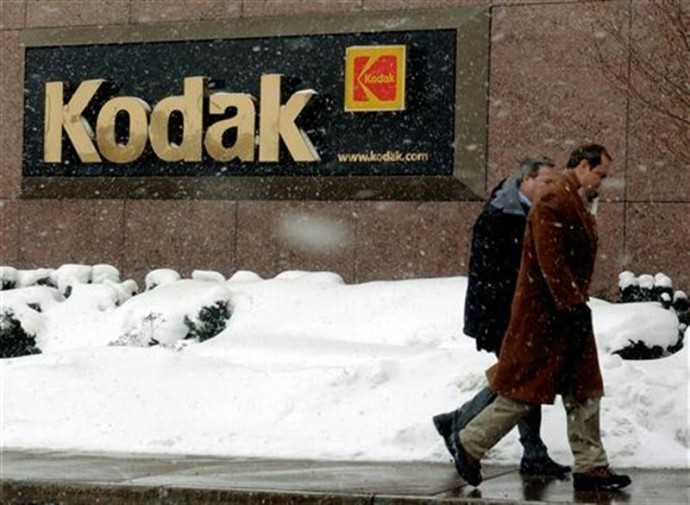'Exclusively for morons': Cryptocurrency gets its Kodak moment, but not everyone is convinced
The initial coin offering (ICO) designed to raise funds will open on 31 January.

Kodak, which traces its roots to the early days of film photography, is getting into the digital licensing and cryptocurrency market as part of a partnership deal with WENN Digital.
The companies are launching blockchain technology with KodakOne and KodakCoin. Blockchain is a ledger where transactions of digital currencies such as bitcoin are recorded.
Kodak, which is based in Rochester, New York, and was founded in 1880, is the latest company to enter the cryptocurrency market as bitcoin makes gains. The cryptocurrency has surged from less than $1,000 a year ago to more than $14,000.
The Kodak systems will allow photographers to register work that they can license and receive payment for. The initial coin offering will open on 31 January.
Shares of Eastman Kodak Co. more than doubled to close at $6.80 (£5.03) on Tuesday (9 January). The stock has slumped over the last year and has shed more than 70% of its value.
"Engaging with a new platform, it is critical photographers know their work and their income is handled securely and with trust, which is exactly what we did with KodakCoin," said WENN Digital CEO Jan Denecke.
"Subject to the highest standards of compliance, KodakCoin is all about paying photographers fairly and giving them an opportunity to get in on the ground floor of a new economy tailored for them, with secure asset rights management built right in," he added.
Kodak and others are entering the market as warnings grow over the riskiness of virtual currencies and the potential for a bubble. There are no regulations over the creation and use of virtual currencies and the nature of the transactions makes them hard to trace.
Recently, Long Island Iced Tea Corp said it planned to change its name to Long Blockchain Corp as it wanted to focus more on blockchain technology while continuing to make beverages.
"For many in the tech industry, 'blockchain' and 'cryptocurrency' are hot buzzwords, but for photographers who've long struggled to assert control over their work and how it's used, these are the keys to solving what felt like an unsolvable problem," said Kodak CEO Jeff Clarke.
"Kodak has always sought to democratise photography and make licensing fair to artists. These technologies give the photography community an innovative and easy way to do just that."
But not everyone was convinced, as some critics took to social network to joke about the move:
Today at CES, Kodak introduced a new crypto coin exclusively for morons.
— Downtown Josh Brown (@ReformedBroker) January 10, 2018
Kodak has launched KodakCoin and their stock is up 120%. Somewhere in the world there’s a strategy meeting right now to launch BlockbusterCoin.
— Aaron Levie (@levie) January 10, 2018
Kodak is selling a Bitcoin miner where you pay for a two year contract and “make a profitâ€. (*at current prices, Kodak gets half of all bitcoin you produce.) This is the dumbest shit I’ve ever seen at CES. pic.twitter.com/rbzECVEMn7
— Chris Hoffman (@chrisbhoffman) January 9, 2018
As best I can tell, operating the new Kodak KashMiner system pic.twitter.com/xCFUE8QUSE
— Ned Pyle (@NerdPyle) January 10, 2018






















